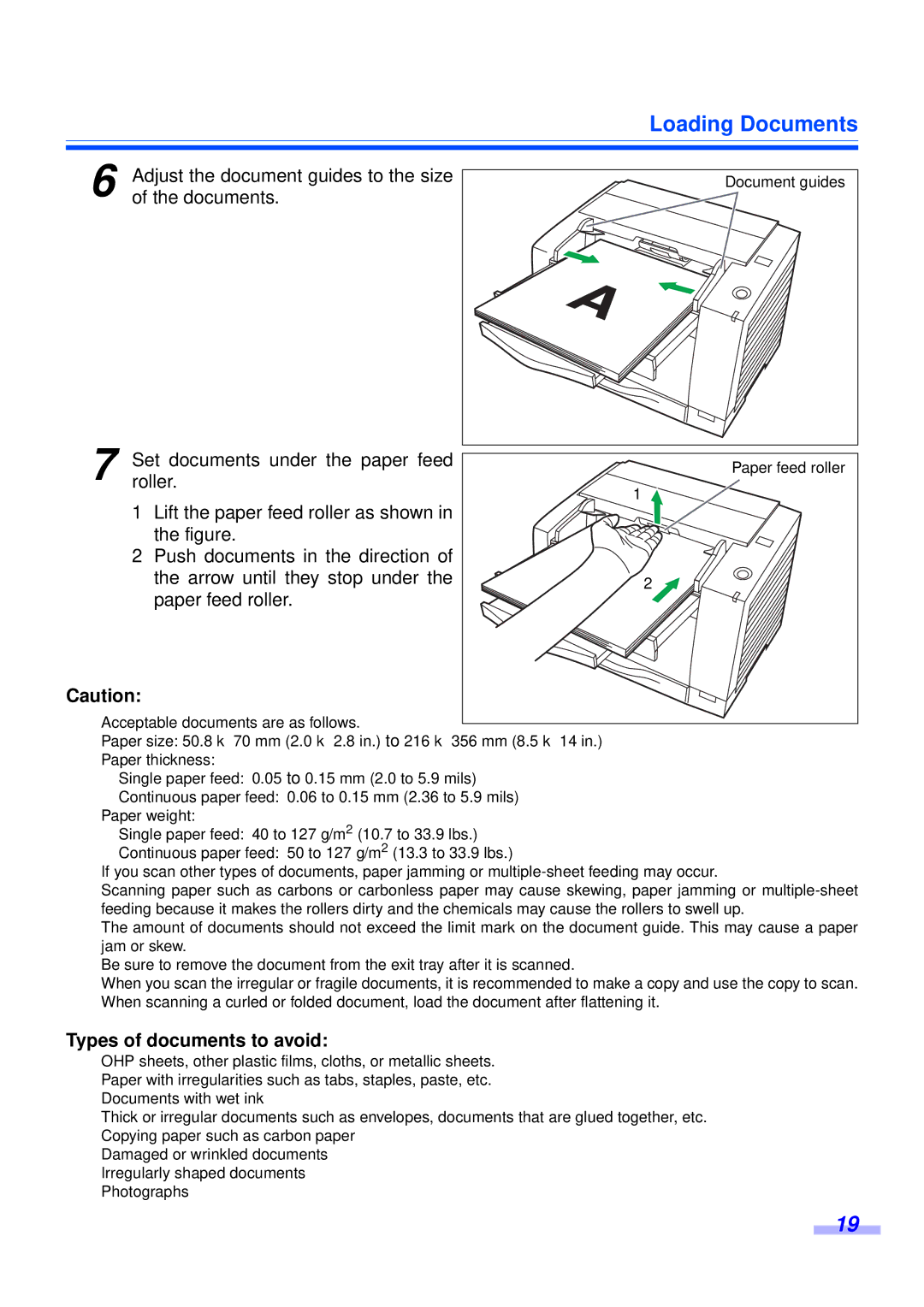
| Loading Documents | |
Adjust the document guides to the size | Document guides | |
6 of the documents. |
| |
Set documents under the paper feed | Paper feed roller | |
7 roller. | ||
1 | ||
1Lift the paper feed roller as shown in | ||
| ||
the figure. |
| |
2Push documents in the direction of |
| |
the arrow until they stop under the | 2 | |
paper feed roller. | ||
|
Caution:
≥Acceptable documents are as follows.
Paper size: 50.8 k 70 mm (2.0 k 2.8 in.) to 216 k 356 mm (8.5 k 14 in.) Paper thickness:
Single paper feed: 0.05 to 0.15 mm (2.0 to 5.9 mils)
Continuous paper feed: 0.06 to 0.15 mm (2.36 to 5.9 mils)
Paper weight:
Single paper feed: 40 to 127 g/m2 (10.7 to 33.9 lbs.)
Continuous paper feed: 50 to 127 g/m2 (13.3 to 33.9 lbs.)
If you scan other types of documents, paper jamming or
≥Scanning paper such as carbons or carbonless paper may cause skewing, paper jamming or
≥The amount of documents should not exceed the limit mark on the document guide. This may cause a paper jam or skew.
≥Be sure to remove the document from the exit tray after it is scanned.
≥When you scan the irregular or fragile documents, it is recommended to make a copy and use the copy to scan.
≥When scanning a curled or folded document, load the document after flattening it.
Types of documents to avoid:
≥OHP sheets, other plastic films, cloths, or metallic sheets.
≥Paper with irregularities such as tabs, staples, paste, etc.
≥Documents with wet ink
≥Thick or irregular documents such as envelopes, documents that are glued together, etc.
≥Copying paper such as carbon paper
≥Damaged or wrinkled documents
≥Irregularly shaped documents
≥Photographs
19
